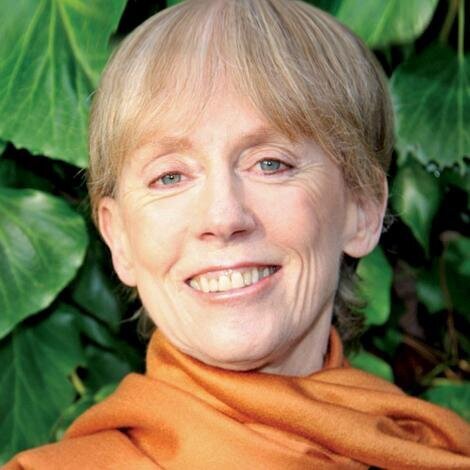How to Understand Awareness
Podcast Summary
Understanding awareness and presence is a profound journey that can transform our lives. In the podcast episode “How to Understand Awareness,” the hosts, Louise Juel and a co-host, explore these concepts, examining their nuances and significance. They discuss the difference between awareness and presence, offer practical exercises for cultivating awareness, and reflect on the challenges of maintaining it in daily life. This blog post provides a comprehensive guide to these discussions, helping you integrate awareness into your routines and enrich your personal growth journey.

Podcast Themes
Differentiating Awareness and Presence
Awareness and presence, though related, are distinct concepts that play crucial roles in our consciousness. Presence is the state of being fully immersed in the moment, where one feels physically and mentally aligned with the universe. It often surfaces during immediate, intense experiences, such as swimming in cold water. These moments demand complete engagement due to the physical sensations, forcing us into the present moment. Presence is about being here and now, fully absorbed in the current experience.
On the other hand, awareness is a broader, more intellectual concept. It involves a conscious recognition of the present moment and one’s reactions to it. Awareness is not just about being in the moment but also about understanding and observing the moment and oneself from a detached perspective. It requires stepping back and observing our thoughts and actions without getting entangled in them. This distinction between awareness and presence is crucial for developing a deeper understanding of our thoughts, actions, and reactions, leading to greater self-awareness and personal growth. The hosts emphasized that while awareness and presence are interconnected, they are not the same. Presence is about being fully engaged in the current experience, while awareness involves a higher level of consciousness, observing and understanding the moment and oneself from a broader perspective. This understanding is vital for deepening self-awareness and fostering personal growth, as it allows for a more profound comprehension of our thoughts and behaviors.
Cultivating Awareness in Daily Life
Cultivating awareness in daily life requires regular practice and self-reflection. In the podcast, the hosts shared several practical exercises to help nurture awareness. One significant practice is mindfulness meditation, which helps us step back from our thoughts and observe them without judgment. This exercise is visualized as sitting in a dark movie theater, watching our thoughts and life events on a screen. This visualization creates a sense of detachment, allowing us to witness our thoughts and emotions without getting entangled in them. The hosts also discussed the importance of self-inquiry in cultivating awareness. Asking questions like “Why am I here?” or “What brought me to this moment?” encourages stepping back from automatic responses and reflecting on actions and motivations. This practice of self-inquiry is crucial for developing awareness, as it helps question actions and thoughts, leading to greater self-understanding.
Integrating awareness into everyday activities is another important aspect. Practices like yoga or mindfulness training provide opportunities to practice being present and observing thoughts and emotions as they arise. By regularly engaging in these practices, we can break the cycle of automatic reactions and promote a more conscious way of living. Simple daily practices, such as focusing on the breath, asking reflective questions, and practicing mindfulness in daily tasks, can significantly impact developing awareness. These practices help stay grounded in the present moment and foster a deeper connection with thoughts and emotions. Cultivating awareness is a continuous process that requires regular practice and self-reflection, but it is a transformative journey that leads to greater self-understanding and personal growth.
Challenges and Reflections on Awareness
Maintaining awareness in everyday life can be challenging, especially amidst the distractions and demands of modern living. In the podcast, the hosts addressed several challenges and offered practical strategies to overcome them. One major challenge is staying present and aware amidst the busyness of daily life, particularly for parents who juggle multiple responsibilities. They highlighted how easy it is to forget small details or get caught up in the busyness of life, leading to a lack of awareness. To combat this, they suggested using tools like calendars and planners to manage daily tasks and reduce mental clutter. By organizing tasks and responsibilities, individuals can free up mental space to focus on being present and aware.
Active listening is another crucial strategy for maintaining awareness. Being fully present in conversations and actively listening to others helps enhance awareness and deepen connections. An exercise mentioned involves listening to someone without looking at them, focusing solely on their words and repeating what was heard. This practice helps individuals stay fully present in conversations and improves listening skills. Reflecting on the journey of awareness, the hosts acknowledged that developing awareness is a continuous process that requires regular practice and self-reflection. They shared personal experiences of how their awareness has evolved over time, emphasizing the importance of perseverance and patience in this journey. The conversation also touched on the idea of fully enlightened beings who are completely present and aware. These beings, they suggested, might remember everything due to their heightened state of awareness, contrasting this with the challenges faced by ordinary individuals in maintaining awareness. This reflection serves as a reminder that while the journey of awareness is challenging, it is also rewarding and transformative.
Conclusion
The podcast episode “How to Understand Awareness” explores the concepts of awareness and presence, offering practical insights and exercises to cultivate awareness in daily life. By differentiating between awareness and presence, sharing practical strategies for developing awareness, and reflecting on the challenges of maintaining it, the hosts provide a comprehensive guide to understanding and integrating awareness into listeners’ lives. The journey of awareness is continuous and requires regular practice and self-reflection, but it is a transformative journey that leads to greater self-understanding and personal growth. Through mindfulness, self-inquiry, and active listening, individuals can cultivate a deeper awareness and live more conscious, fulfilling lives.







